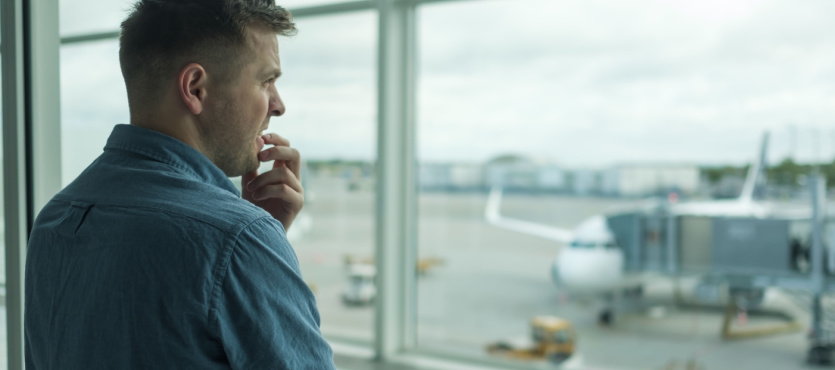Aviophobia, also known as fear of flying, is a relatively common phobia that affects many individuals. It can be triggered by a variety of factors, such as fear of heights, lack of control, or even previous negative experiences during flights. However, flight training can be an effective method to help individuals overcome their fear of flying.
It is essential to acknowledge that overcoming the fear of flying is a gradual process and may require a combination of approaches. While flight training can be an effective method, other modules of the pilot training program can also lend support toward building a healthier and stronger mindset toward flying in student pilots. If you or a loved one associates with aviophobia, here are some ways in which flight training can be beneficial:
- Understanding the Mechanics
Flight training provides a comprehensive understanding of the mechanics of aircraft and the principles of flight. Knowing how planes operate and the safety measures in place can help alleviate fears stemming from a lack of understanding.
Pilot training programs use various flight instruments, such as the altimeter, airspeed indicator, attitude indicator, and navigation instruments, to help students get familiar with various aircraft and technologies involved.
- Control and Confidence
Learning to control an aircraft, even with an instructor’s assistance, can empower individuals and help build confidence. Understanding the basics of piloting can make one feel more in control and less vulnerable during flights.
Facets of pilot training like simulators help build muscle memory, decision-making skills, and confidence in handling complex situations, contributing to a pilot’s overall sense of control and competence.
- Exposure Therapy
Gradual exposure to the flying environment can help desensitize individuals to their fear. Flight training provides a controlled environment where individuals can gradually confront their fears and develop coping mechanisms. Additionally, the training staff may also employ additional techniques to help students feel comfortable and understand high-stakes scenarios better.
- Safety Protocols and Emergency Procedures
Flight training emphasizes safety protocols and emergency procedures, which can provide reassurance to individuals with a fear of flying. Understanding that pilots are trained extensively to handle various situations can help alleviate anxiety related to potential mishaps.
- Professional Guidance and Support
Working closely with flight instructors who understand the dynamics of fear of flying can provide personalized guidance and support. Instructors can offer coping strategies and techniques to manage anxiety during flights.
Professional guidance in pilot training often includes career counseling sessions and networking opportunities, which help students make informed decisions about their future in aviation. Moreover, instructors extend their support throughout the licensure and certification process to help students get across the first few hurdles in their journey.
- Knowledge of Turbulence and Weather Conditions
Understanding the nature of turbulence and how pilots navigate through various weather conditions can help individuals gain a sense of security during turbulent moments, which are often a source of anxiety for those with a fear of flying.
- Cognitive Behavioral Techniques
Flight training often incorporates cognitive-behavioral techniques that help individuals reframe negative thought patterns and develop a more positive mindset about flying. These techniques can be invaluable in managing and overcoming the fear of flying.
Learn With The Best Instructors
At Airlink Flight School, we provide comprehensive professional guidance, support, and pilot training programs that aim to nurture the skills, knowledge, and confidence of aspiring pilots, preparing them to embark on successful careers in the aviation industry.
If you are contemplating the decision to enter the aviation industry, and would like to learn more about the career opportunities it offers, experts at Airlink Flight School would be more than glad to assist you. Call us today to learn more about our school and training programs!

